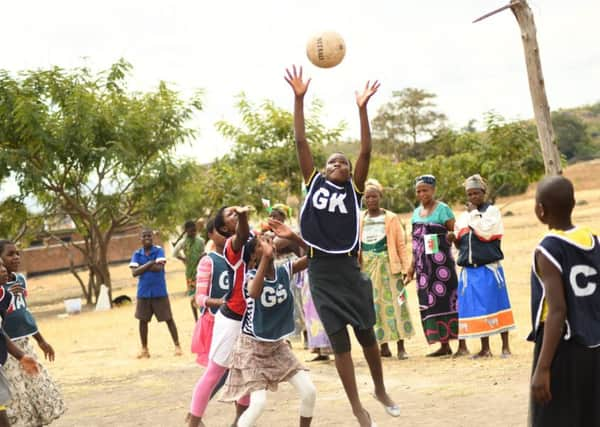Jack McConnell: No More Excuses – we must end the normalisation of child sexual abuse


Childhood sexual violence is a tragedy that needs to be confronted. There are no more excuses for failing to act.
Although sexual violence occurs everywhere – in both developed and developing countries – it is particularly prevalent in areas of war, conflict and poverty. It is a scourge in many of the contexts where United Purpose, a global NGO supported by the McConnell International Foundation, works.
Advertisement
Hide AdAdvertisement
Hide AdOne of the biggest battles in this area of work is the normalisation of child sexual abuse. Often, when we talk about child sexual exploitation in a UK context, we think of it as something that happens in secret, behind closed doors. When such abuse comes to light, it sends shockwaves through society.
But this is not the case in all countries. In some communities across the world, abuse has become so commonplace and so entrenched that it is not questioned. It is seen as a normal part of everyday life.
Take female genital mutilation (FGM) as an example, which involves the ritual cutting or removal of the external female genitalia. Illegal and classed as child abuse in the UK, this harmful practice still occurs in around 30 countries, primarily concentrated in Africa and the Middle East. In 2005, I introduced a law in Scotland that made it illegal to send young girls out of the country for FGM, with 14 years in prison as the penalty.
Or, let’s take a look at Malawi. In this beautiful, landlocked country in southern Africa, sexual violence against children is a persistent problem. Some 22 per cent of girls there experience at least one incident of sexual violence before turning 18 and sexual violence is the most commonly reported crime in the country. A shocking one in four young women aged 15-19 describe their first sexual experience as “forced”.
In some remote communities in the south of Malawi, the sexual abuse of young girls is inextricably linked to deeply rooted cultural practices and the perpetuation of traditional gender norms. A custom known as “kuchotsa fumbi” (cleansing) involves girls being forced to have sex with an older man to initiate them into womanhood. When a girl experiences her first menstrual cycle, she goes to a “camp” with other girls where a man, often referred to as a “fisi” (hyena), is brought in to have sex with her. The girl’s parents pay him to have sex with their daughter as part of her transition into adulthood. This is just one of many examples of how child sexual abuse is normalised in some contexts.
The time has come to bring an end to such harmful practices. We need to come forward and stand with children, survivors of abuse, local activists and grassroots community organisations. We need to be bold enough to call out child sexual abuse in whatever form it takes, and we can no longer hide behind the excuses of culture or tradition.
I am proud that the McConnell International Foundation is supporting United Purpose to confront the sexual abuse of children worldwide. Their campaign, No More Excuses, is campaigning to end sexual violence against children and transform their futures, in Malawi and beyond.
It is only by working in partnership with others – individuals, families, communities, institutions – that we can fight the normalisation of child sexual abuse and put an end to it, once and for all.
Lord McConnell was Scotland’s first minister from 2001 to 2007. He now campaigns against global poverty and works for peace.